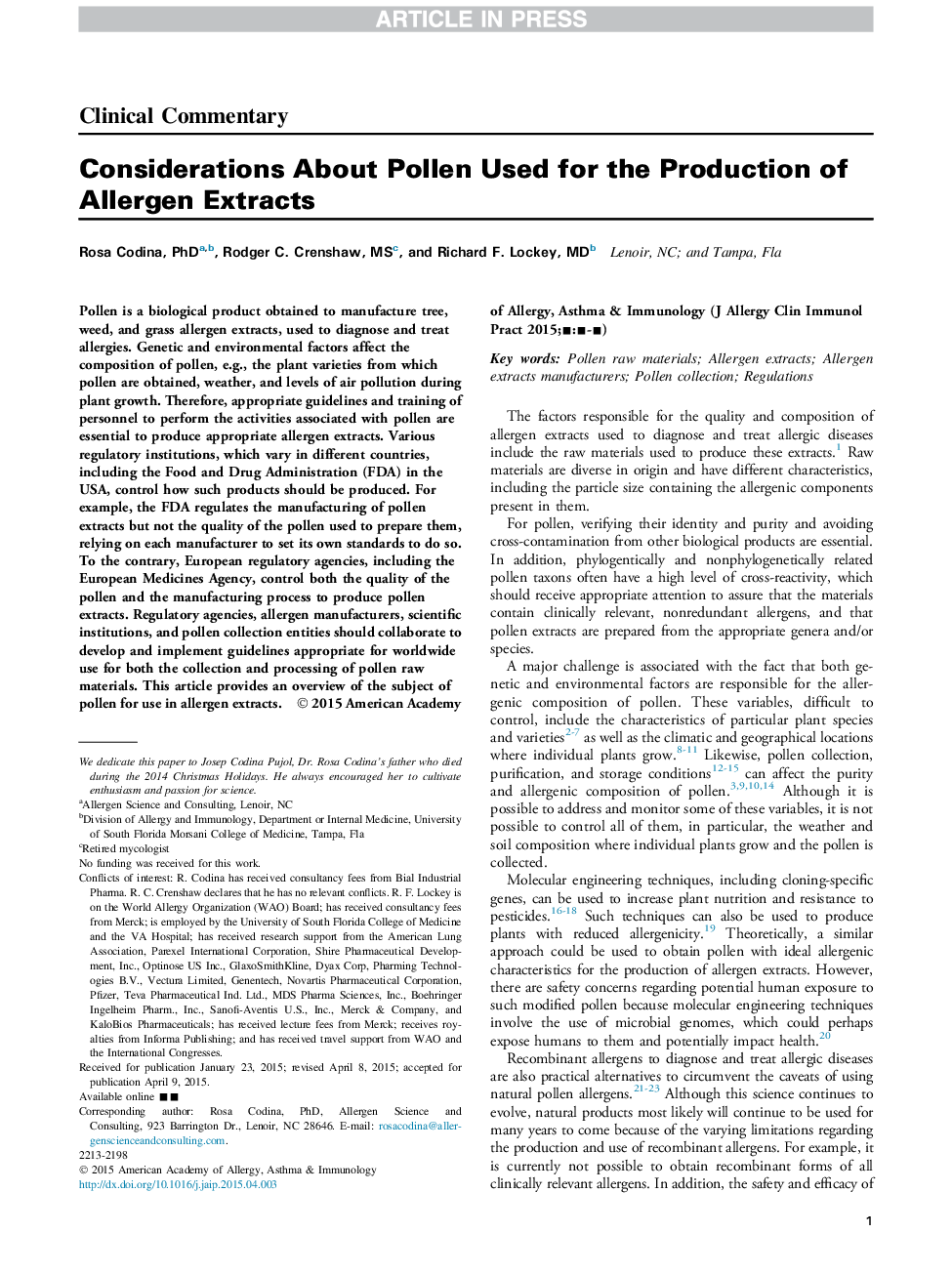| Article ID | Journal | Published Year | Pages | File Type |
|---|---|---|---|---|
| 6068676 | The Journal of Allergy and Clinical Immunology: In Practice | 2015 | 7 Pages |
Abstract
Pollen is a biological product obtained to manufacture tree, weed, and grass allergen extracts, used to diagnose and treat allergies. Genetic and environmental factors affect the composition of pollen, e.g., the plant varieties from which pollen are obtained, weather, and levels of air pollution during plant growth. Therefore, appropriate guidelines and training of personnel to perform the activities associated with pollen are essential to produce appropriate allergen extracts. Various regulatory institutions, which vary in different countries, including the Food and Drug Administration (FDA) in the USA, control how such products should be produced. For example, the FDA regulates the manufacturing of pollen extracts but not the quality of the pollen used to prepare them, relying on each manufacturer to set its own standards to do so. To the contrary, European regulatory agencies, including the European Medicines Agency, control both the quality of the pollen and the manufacturing process to produce pollen extracts. Regulatory agencies, allergen manufacturers, scientific institutions, and pollen collection entities should collaborate to develop and implement guidelines appropriate for worldwide use for both the collection and processing of pollen raw materials. This article provides an overview of the subject of pollen for use in allergen extracts.
Related Topics
Life Sciences
Immunology and Microbiology
Immunology
Authors
Rosa PhD, Rodger C. MS, Richard F. MD,
